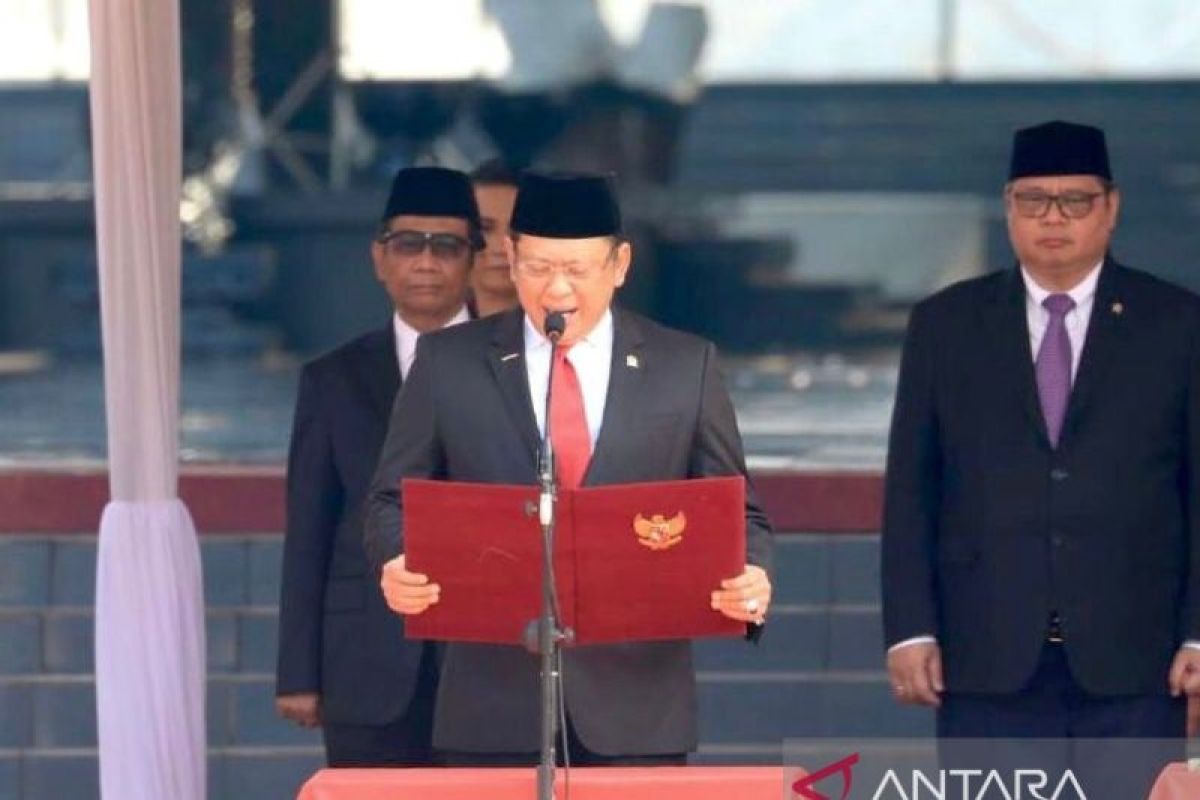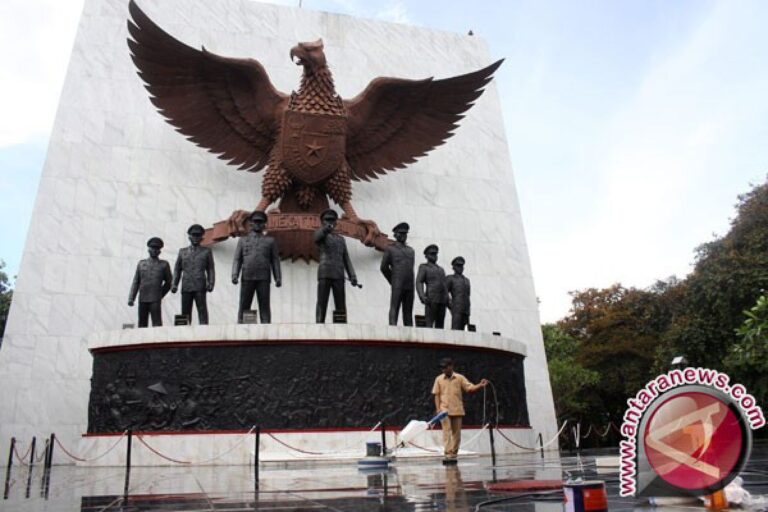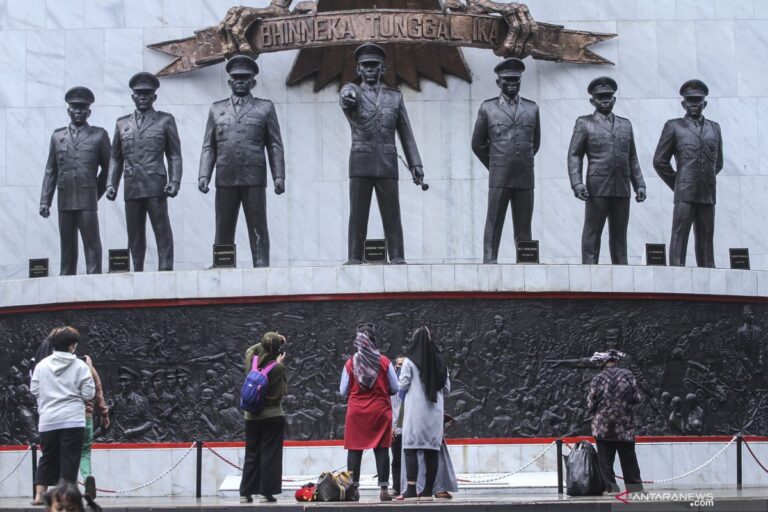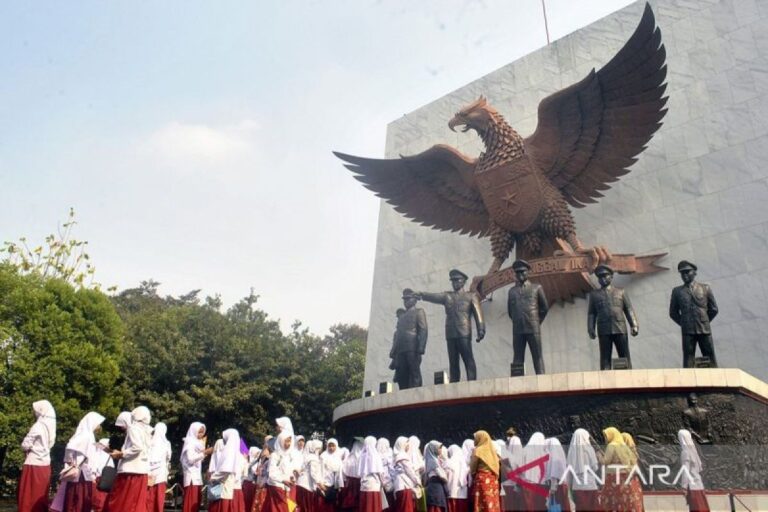
Jakarta (ANTARA) – Every October 1, the Indonesian nation commemorates Pancasila Holiness Day to remember the importance of protecting the country’s ideology from various threats.
However, many are still confused about the difference between Pancasila’s birthday on June 1 and Pancasila’s sainthood day on October 1. Both are related to the story of Pancasila, but have different basic definitions and meanings.
Understanding this difference is important so that the current generation not only commemorates it ceremonially, but is also able to grasp the values it contains.
Below are the differences and basis for determining Pancasila Holiness Day on October 1 and Pancasila birth on June 1, based on information collected from various sources.
Read also: October 2025: is there a red date or not? This is the holiday program
The basis for determining the difference between the day of sainthood of Pancasila and the day of birth of Pancasila
Every year, the Indonesian people recognize two important moments related to Pancasila. The first is the birth day of Pancasila which falls on June 1, and the second is the sainthood day of Pancasila which is celebrated every October 1. Both have different historical backgrounds. The following is the explanation, according to the Law website online.
1. Pancasila’s Birthday – June 1st
The term Pancasila derives from Sanskrit, i.e. panca meaning “five” and sila meaning “principle or base”. This word was first introduced by Soekarno at the BPUPKI session on June 1, 1945 to refer to the five foundations of the Indonesian state.
The determination of this date as Pancasila’s birthday is regulated by Presidential Decree (Keppres) number 24 of 2016, which contains several main points:
• Established on June 1, 1945 as the birthday of Pancasila.
• Declare June 1st a national holiday.
• The government along with the community commemorate it every year.
• The decision is effective since it was adopted on June 1, 2016.
Pancasila’s birth day is celebrated to commemorate Soekarno’s speech at the BPUPKI session, which became the basis for the birth of Pancasila. This formulation was then finalized at the PPKI session on 18 August 1945 with the contribution of other figures such as Moh. Yamin, Mohammad Hatta and Soepomo.
Read also: MPR: Pancasila Sanctity Day is an impetus to strengthen national unity
2. Pancasila Holiness Day – October 1st
Unlike Pancasila’s Birthday, the determination of Pancasila’s Holiness Day is based on Presidential Decree Number 153 of 1967. This regulation states:
• October 1 is designated as Pancasila Holiness Day.
• All Indonesian people commemorate him solemnly and in an orderly manner.
• The decision has been in force since September 27, 1967.
The context of his appointment cannot be separated from the events of the September 30 Movement (G30S/PKI) 1965, when seven TNI generals were kidnapped and killed. This incident was seen as an attempt to undermine the Pancasila ideology. For their sacrifices, the fallen officers were later awarded the title Heroes of the Revolution.
Therefore, June 1 is interpreted as the birth of Pancasila as the basis of the state, while October 1 becomes a symbol of the nation’s steadfastness in defending Pancasila from threats.
Read also: Pramono calls Pancasila Sainthood Day a impetus for national unity
So what’s the difference?
The key difference between these two warnings is context. Pancasila Birth Day is intended as a time of reflection on the birth of the nation’s ideology, while Pancasila Sanctity Day commemorates efforts to defend this ideology from other threats.
Furthermore, June 1st has been declared a national holiday, while October 1st only has the status of a national day without a red date. Although different, the two complement each other in strengthening the national spirit of the Indonesian people.
Symbolically, the determination of the Day of Holiness of Pancasila has its own meaning. According to Zulfikar (2021) of BEM FKG UGM, the significance of Pancasila Holiness Day commemoration includes:
1. A form of respect for the heroes who died to protect Pancasila.
2. We remember their struggle to maintain Pancasila as the basis of the state and national ideology.
3. Regenerate the spirit of nationalism and love for the country that may be starting to fade.
Therefore, understanding the difference between the birth day of Pancasila and the day of sanctity of Pancasila is not only important historically, but is also relevant to today’s national life.
Both teach that Pancasila is not just the basis of the state, but rather a guideline that must be maintained, practiced and passed on to the next generation to preserve the unity and integrity of Indonesia.
Read also: Khofifah: Pancasila Holiness Day is an impetus to strengthen unity
Reporter: Sean Anggiatheda Sitorus
Publisher: Suryanto
Copyright © ANTARA 2025
Automatic retrieval of content, crawling or indexing by artificial intelligence on this website is strictly prohibited without written permission from ANTARA news agency.



